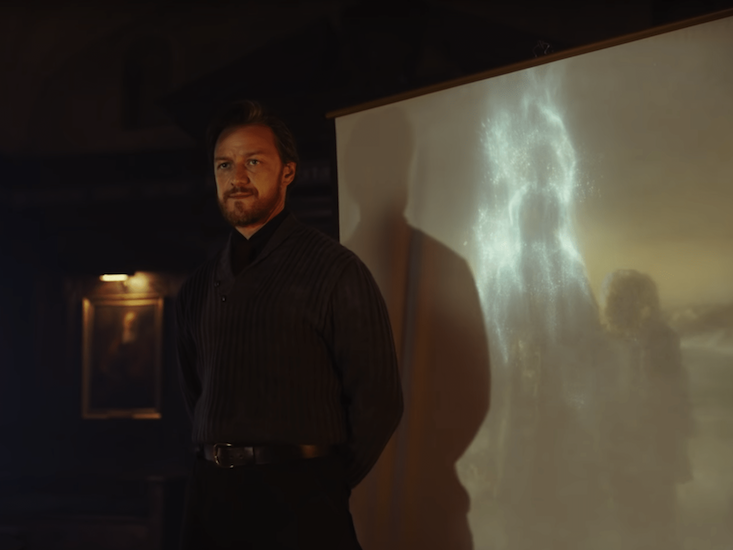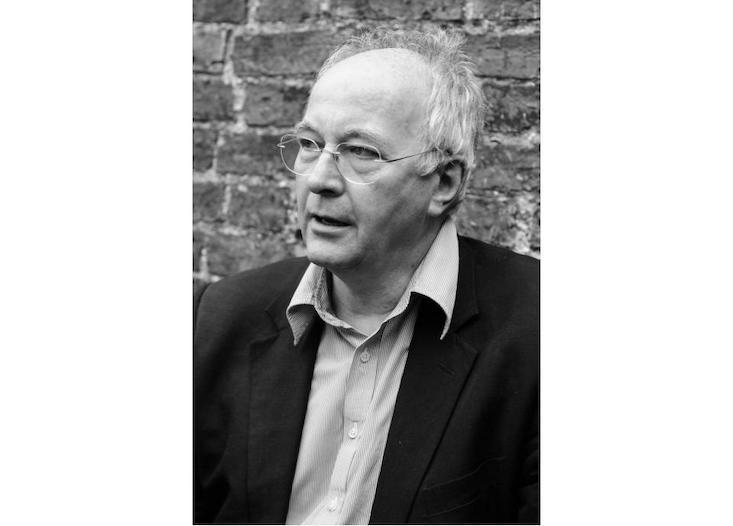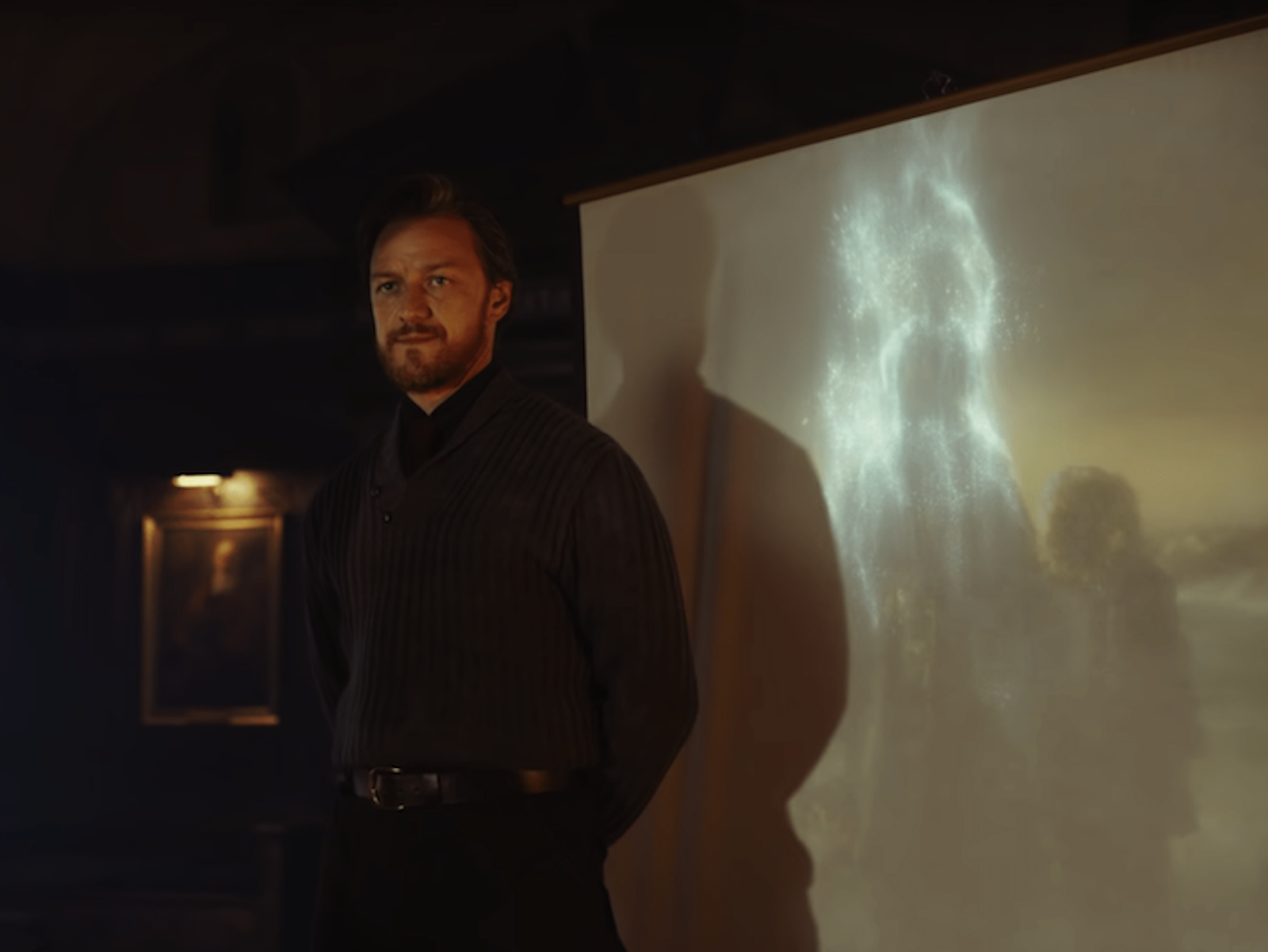
Philip Pullman is once again having a moment, thanks to the new blockbuster adaptation of His Dark Materials by the BBC and HBO. His fantasy classic—filled with witches, talking bears and “daemons” (people’s alter-egos that take animal form)—is rendered in glorious steampunk detail. Pullman has also returned to the fictional world of his heroine, Lyra Belacqua, with a new trilogy, The Book of Dust, which probes more deeply into the central question of his earlier books: What is the nature of consciousness?
Pullman loves to write about big ideas, and recent scientific discoveries about dark matter and the Higgs boson have inspired certain plot elements in his novels. The biggest mystery in these books—an enigmatic substance called Dust—comes right out of current debates among scientists and philosophers about the origins of consciousness and the provocative theory of panpsychism.
I reached Pullman at his home just outside Oxford, England, to talk about the ideas behind his novels and why this celebrated atheist is so intent on seeing consciousness in everything around him.

Why did you come back to Lyra and the story of your earlier trilogy, His Dark Materials? Did you feel like there was unfinished business in the story?
Yes, mainly Dust. The Dust that figures in the title of this trilogy, The Book of Dust. It’s the Dust that’s mentioned in the very first chapter of The Golden Compass—Dust with a capital letter D. It’s the mysterious thing that exists everywhere. But the people with the knowledge who are in charge, the Magisterium, are afraid of it because it seems to be linked in some weird way with human consciousness and sin and all the things they would like to control and banish, if they could.
I didn’t get to the point of actually saying much more about Dust than what’s said in The Amber Spyglass, the final book of the first trilogy. I’d been wondering how I could revisit that. And I’m very grateful to the world of science for its utter failure so far to discover what dark matter is. I made a link to the dark matter in our universe—the matter that’s holding the galaxies together gravitationally—and I was keeping my fingers crossed that we wouldn’t discover what it was before the book was published. Well, 25 years later, they still don’t know. In fact, they’ve found a new kind of darkness, dark energy.
One of the central tensions in the book is the dichotomy between reason and imagination and the sense that we’ve lost our imagination. A century ago, the sociologist Max Weber had a word for this—“disenchantment.” It seems like Lyra has become disenchanted with the world.
“Disenchantment” is a very good word. It’s a state of mind, which is also very well described in that Wordsworth poem, “Ode on Intimations of Immortality.” It begins, “There was a time when meadow, grove and stream, the Earth, and every common sight, to me it did seem apparelled in celestial light, the glory and the freshness of a dream.” That was when he was a boy, but now he’s grown up and the magic is gone.
Lyra asks herself, is the universe alive or dead? And it seems like that’s what she’s trying to figure out. How can she believe once again that the world is alive?
That’s exactly it. And I’m going to face that question squarely in the third book. She’s going on a journey in search of herself.
What does the title of your new book, The Secret Commonwealth, refer to?
It’s the title I stole from a little book that begins The Secret Commonwealth of Elves, Fauns and Fairies, which was written in the late 17th century by the Scottish clergyman Robert Kirk. He must have been a pretty liberal churchman because he made a study of the local legends and myths about fairies, ghosts and spirits. It’s a charming little book, and I thought the title was far too good to go to waste. It’s that world of folklore—of ghosts and wisps and fairies, which represents the imagination.
The notion that the world is conscious is something I find very persuasive. You don’t have to believe in a Christian god or a Muslim god to believe that.
I find this so interesting because you are a highly visible atheist, and atheism typically values reason and science above all else. And yet this story celebrates the hidden parts of reality which fall outside the realms of rational analysis. I know this is a fantasy novel, but your story seems to be a critique of excessive rationality. You’re saying we need to rediscover the imagination and this invisible, magical world.
Yes, I am saying that, but in welcoming the world of the irrational, I’m not rejecting rationality. What I’m rejecting is what William Blake called “single vision,” the view that there’s one answer, whether it’s Marxism or science or fundamentalist Christianity, and everything must be subordinated to that because I am right and you’re wrong. There is an honored place for reason and rationality because the discoveries of science in the past three or four hundred years have immeasurably benefited the human race. But if you only allow yourself to see things through the filter of scientific thinking, you will miss a great deal of what’s there.
I’ve just been reading a very good book by Philip Goff. He’s a philosopher who is very interested in the theory of panpsychism. It’s a theory about consciousness, which is such a mysterious thing to discuss. We are clearly made of matter. We can look at every cell, every atom, every molecule in our bodies, and it’s all matter. You can’t find any spirit there no matter how much you cut it up, but it is nevertheless conscious. And the traditional way of explaining this is to say the body does material things and the spirit does the consciousness. But that’s become harder and harder to believe. All the scientific explanations for consciousness seem to stumble or fall or come against a paradox which is irreconcilable.
What panpsychism does, and this is what I like about it, is to suggest that consciousness is a normal property of matter. We accept that mass is a normal property of matter, and so is electric charge. If you view consciousness as a state in which matter can exist, then the problem goes. Everything is conscious. That’s not to say that the cup of tea from which I am now drinking is conscious and saying to me, “Come on, hurry up, you haven’t finished this yet.” Or to say that every leaf on the tree is as conscious as I am. No, but consciousness is something that pervades everything. And although many philosophers find this vision hard to accept, poets don’t find it hard to accept. Blake, another of the great Romantic poets, who I think was a panpsychist before the word existed, talks of “every particle of dust breathing forth its joy.” He says, “How do you know but every Bird that cuts the airy way, is an immense world of delight, closed by your senses five.” So the notion that the world is alive, the world is conscious, is something that I find very persuasive. You don’t have to believe in a Christian god or a Muslim god to believe that.
Most scientists still believe you need a brain for consciousness. But to say consciousness is in everything, even inanimate objects, is kind of revolutionary, isn’t it?
Yeah, it is revolutionary. I compare this to the Copernican revolution, when we thought quite rationally that we are here on this big solid earth as we see the sun moving across the sky, we see the moon, we see the planets moving through the stars and of course they are all going around the Earth. But as observations began to be more accurate, it became harder and harder to explain until eventually Copernicus said, “Let’s imagine the sun is still and the Earth is going around the sun.” As soon as you do that, all those problems disappear. The idea panpsychism seems to me very similar to that.
And this idea of trying to see everything in the world as alive is Lyra’s challenge. That opens the door to a different kind of mindset about how we look at the world.
It certainly does, and this is what I think people like Greta Thunberg and Extinction Rebellion and the young people who’ve been protesting so passionately about the state of things—they’re onto this sort of thing. There’s a sense that the people who run the world have up until now treated the world as a dead thing that they can scavenge for whatever they want. They can tear coal and pump oil, they can burn it and hurl the smoke into the atmosphere, and it’s all dead and it doesn’t matter. Well, we’re discovering now to our great cost that it’s not all dead and it does matter. The Gaia hypothesis of James Lovelock taps into the same feeling.
You have this mysterious substance called Dust, which is somehow connected to consciousness. I know this is part of the mystery of your story, but can you tell us more about Dust?
One of the things that helped me think this through was the discovery of the Higgs boson at CERN. There’s a Higgs field which permeates everything, and this is the particle associated with that field. That’s why this teacup weighs something when I pick it up. And that’s why things stay on the shelf and don’t float away because they have mass. The Higgs field and the Higgs particle were a good model for how Dust works. Dust is a particle and there’s a field associated with it—like the Higgs field—which I call the Rusakov field, which permeates everything.
Why is everything about Dust so secretive? And why does the Magisterium want to control it?
In just the same way that the Catholic Inquisition of the 17th century persecuted Galileo, who brought new ideas like the sun being at the center of the universe. The Church persecuted them because they seemed to contradict what the Bible said. And the Church, being in control of everything, wanted to command people’s thoughts as well as what they did. They were very fierce and severe in defending this knowledge that we now know to be untrue. So the Magisterium in my book is doing the same sort of thing with this idea of Dust, which seems to be connected with the change in consciousness that comes to us in adolescence, with the awakening of sexuality, with the change in William Blake’s terms “from innocence to experience.”
These are all tied up together, and because they involve this notion of sin and because it goes back to the story in the Book of Genesis that Adam and Eve sinned by eating the fruit from the Tree of Knowledge. It was discovering the knowledge of good and evil which marked them out. They were innocent no more, and they had to leave paradise. I refer to that story in “His Dark Materials.”
Of course, this moment is traditionally seen as the fall from grace. But you’re saying eating the apple was when they discovered self-consciousness.
That’s correct. I can see why people would think it was heretical, but I have never understood why a God who invented us would not want us to know about things, and would tempt us with the knowledge of something and then forbid us to enjoy it. That seems crazy to me.
Steve Paulson is the executive producer of Wisconsin Public Radio’s nationally syndicated show “To the Best of Our Knowledge.” He’s the author of Atoms and Eden: Conversations on Religion and Science. You can subscribe to TTBOOK’s podcast here.


























